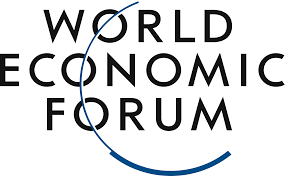The World Economic Forum’s (WEF’s) AI Governance Alliance (AIGA) released on Thursday three new reports on advanced artificial intelligence (AI) which focused on generative AI governance, unlocking its value and a framework for responsible AI development and deployment.
The alliance, which comprised governments, businesses and experts, was set up to shape responsible AI development applications and governance, and to ensure equitable distribution and enhanced access to this path-departing technology worldwide.
Speaking on the alliance report, Head, AI, Data and Metaverse, World Economic Forum, Cathy Li, said: “The AI Governance Alliance is uniquely positioned to play a crucial role in furthering greater access to AI-related resources, thereby contributing to a more equitable and responsible AI ecosystem globally.
“We must collaborate among governments, the private sector and local communities to ensure the future of AI benefits all”, the expert added.
According to the report, AIGA is calling upon experts from various sectors to address several key areas, including improving data quality and availability across nations, boosting access to computational resources, and adapting foundation models to suit local needs and challenges.
The alliance also made a strong emphasis on education and the development of local expertise to create and navigate local AI ecosystems effectively, adding that in line with these goals, there is a need to establish new institutional frameworks and public-private partnerships along with implementing multilateral controls to aid and enhance these efforts.
While AI holds the potential to address global challenges, it also poses risks of widening existing digital divides or creating new ones. These and other topics are explored in a new briefing paper series, released today and crafted by AIGA’s three core workstreams, in collaboration with IBM Consulting and Accenture.
As AI technology evolves at a rapid pace and developed nations race to capitalize on AI innovation, the urgency to address the digital divide is critical to ensure that billions of people in developing countries are not left behind.
The WEF in a news release issued today in Switzerland on the AIGA’s reports further clarified: “On international cooperation and inclusive access in AI development and deployment, Generative AI Governance: Shaping Our Collective Global Future – from the Resilient Governance and Regulation track – evaluates national approaches, addresses key debates on generative AI, and advocates for international coordination and standards to prevent fragmentation.
“Unlocking Value from Generative AI: Guidance for Responsible Transformation – from the Responsible Applications and Transformation track – provides guidance on the responsible adoption of generative AI, emphasizing use case-based evaluation, multistakeholder governance, transparent communication, operational structures, and value-based change management for scalable and responsible integration into organizations.
“In addition, for optimized AI development and deployment, a new Presidio AI Framework: Towards Safe Generative AI Models – from the Safe Systems and Technologies track – addresses the need for standardized perspectives on the model lifecycle by creating a framework for shared responsibility and proactive risk management.
“AIGA also seeks to mobilize resources for exploring AI benefits in key sectors, including healthcare and education”, the WEF added.






